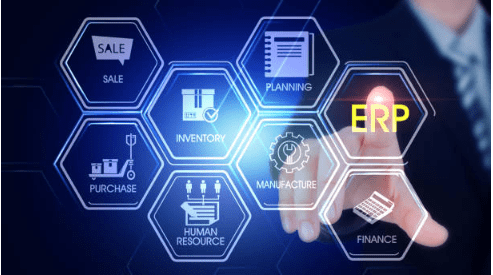ERP software in Pakistan is no new thing, it’s the system that is revolutionizing all the corporate companies in each and every industry. It’s ability to make businesses efficient, streamlined and also profitable. It integrates departments and builds greater transparency— how can you deny its use?
Moreover, the ERP accounting software also has the power to influence the trends of certain industries. It has the ability to evolve in such a way that the functions and roles of different companies and industries also change with it. One such industry is the food and beverage industry that was heavily influenced by ERP trends in 2021.
So, when are you getting your erp consulting services to get one for your own company? Don’t miss out on the most futuristic solutions that can impact your business for the better. Read all about the 5 ERP trends that shaped the food and beverage industry in 2021
Cloud-Based ERP Systems
Cloud-based ERP systems will continue to gain popularity in the food and beverage industry as they offer cost-effective solutions with scalable features. This will allow companies to access data and software from anywhere, at any time.
Automation and AI
Automation and AI technologies will be used more and more in the food and beverage industry to optimize production and supply chain management. This will improve efficiency and reduce errors.
IoT Integration
IoT technology will continue to be integrated into ERP systems to improve supply chain management, real-time inventory tracking, and predictive maintenance.
Mobile ERP
Mobile ERP solutions will become more prevalent as they allow employees to access data and software on the go, improving productivity and efficiency.
Cybersecurity
As cyber threats continue to increase, food and beverage companies will prioritize cybersecurity in their ERP systems to protect sensitive data and maintain compliance with industry regulations.
Why Are ERP Systems Important?
Enterprise Resource Planning (ERP) systems are a critical component of modern business operations. They provide a centralized platform for managing and automating various business processes, such as accounting, inventory management, and customer relationship management. By integrating these functions into a single system, ERP systems can help organizations streamline their operations and gain valuable insights into their business.
One of the key benefits of ERP systems is their ability to improve efficiency. By automating various business processes, ERP systems can help reduce the amount of time and effort required to complete tasks. This can help organizations save money and improve productivity. Additionally, ERP systems often provide real-time data on key performance indicators, such as inventory levels and sales figures, which can help managers make more informed decisions. Another key benefit of ERP system is their ability to improve accuracy. By centralizing data and automating processes, ERP systems can help reduce the risk of errors and inconsistencies. This is particularly important for organizations that rely on accurate data for decision-making, such as manufacturing companies and financial institutions.
Better Communication and Collaboration
ERP software in Pakistan can help organizations improve communication and collaboration. By providing a centralized platform for sharing data and information, ERP systems can help different departments and teams work more effectively together. Additionally, many ERP systems include tools for managing customer relationships, such as CRM software, which can help organizations better understand and serve their customers. ERP systems also have a role in helping organizations improve their financial performance. By providing a comprehensive view of an organization’s financials, ERP systems can help managers identify areas where they can reduce costs and improve profitability. Additionally, many ERP systems include budgeting and forecasting tools that can help managers plan for the future.
ERP accounting software can also play a critical role in an organization’s compliance with government regulations and industry standards. Many ERP systems include built-in compliance capabilities, such as tools for managing data privacy and security, that can help organizations meet regulatory requirements.
So to put it simply, the ERP systems are an essential tool for organizations looking to improve efficiency, accuracy, communication, financial performance, and compliance. They provide a centralized platform for managing and automating various business processes and can help organizations gain valuable insights into their operations. With the increasing complexity and competition of business, ERP systems are becoming more and more critical for success. As the world is becoming more digital and technology-driven, ERP systems are becoming a necessary investment for organizations of all sizes and industries.
How To Find The Best ERP For Your Organization?
This system software has become a crucial aspect of modern business operations. It provides a centralized platform for managing various business functions, such as accounting, inventory management, and customer relationship management. Finding the right ERP system for your company can be a daunting task, but by following a few key steps, you can ensure that you select the best system for your needs.
Define Your Business Requirements
Before you start looking at different ERP systems, you need to have a clear understanding of what your business needs. This includes identifying the specific functions that you need the system to perform, such as accounting, inventory management, or customer relationship management. It’s also important to consider any industry-specific requirements that you may have.
Research Different Erp Systems
Once you have a clear understanding of your business requirements, you can start researching different ERP systems. There are many different ERP systems available on the market, so it’s important to do your research to find the one that best fits your needs. Some important factors to consider when researching ERP systems include cost, scalability, and ease of use.
Consider Cloud-Based Erp Systems
Many modern ERP System software in Pakistan are cloud-based, which means that they are accessible from any device with an internet connection. This can be a great option for companies that have multiple locations or employees who work remotely. Cloud-based ERP systems also tend to be more cost-effective than traditional, on-premises systems.
Evaluate The Vendor’s Experience And Reputation
When choosing an ERP system, it’s important to consider the experience and reputation of the vendor. Look for vendors that have a proven track record of success in your industry and have a good reputation for customer service and support. Start vetting vendors and get ERP consulting services to make your pick.































